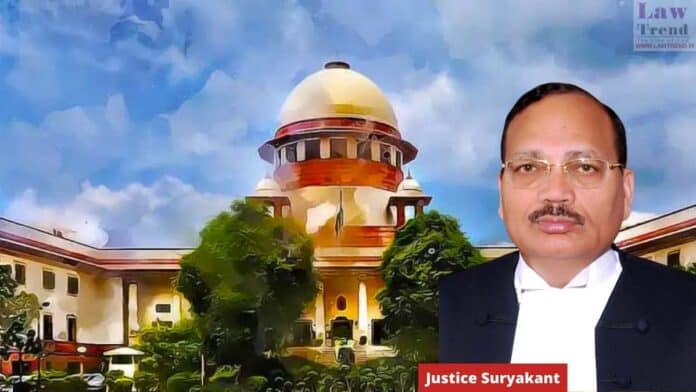Supreme Court judge Justice Surya Kant on Sunday expressed concern over the increasing delays in arbitration proceedings, warning that what was once designed as a swift alternative to litigation is now undermined by prolonged timelines and excessive adjournments.
Delivering the valedictory address at the closing session of the third edition of the Delhi Arbitration Weekend—jointly organised by the Supreme Court, Delhi High Court and the Delhi International Arbitration Centre—Justice Kant stressed that speed is the “soul of arbitration” and cautioned that persistent delays threaten to cripple its very purpose.
“Arbitration was originally conceived as a swift alternative to litigation. It is now, however, a victim of protected timelines and excessive adjournments, often frustrating that very promise,” Justice Kant said, urging stricter timetables, case management conferences, and institutional practices such as model procedural rules to check the problem.
Justice Kant also highlighted concerns over the quality and consistency of arbitral awards, especially as India aspires to position itself as a preferred global seat of arbitration. He said arbitral awards must not only survive judicial scrutiny but also demonstrate fairness and reasoning that command international respect.
“Although arbitration promises efficiency, expertise and finality, its legitimacy rests upon two essential pillars – independence and integrity. Without these pillars, arbitration is reduced to a hollow ritual,” he observed.
While acknowledging the wide autonomy enjoyed by arbitrators, Justice Kant underlined that judicial oversight remains crucial when fairness and impartiality are at stake. He noted that the Supreme Court has consistently strengthened arbitration jurisprudence by ensuring independence and impartiality of arbitrators, including rulings that disallow ineligible or interested parties from appointing arbitrators.
“Party autonomy remains the backbone of the arbitral process in India, designed to give parties the widest possible freedom to shape procedures. But when fairness is imperilled, courts assume their role as guardians of credibility,” he said.
Justice Kant emphasised that India’s evolving jurisprudence mirrors international arbitration norms, where minimal judicial intervention is balanced with independence and credibility. He urged arbitrators and practitioners to resist the instinct of treating arbitration like conventional litigation, where delays and repeated challenges become strategies.
“Legal practitioners must resist that instinct and arbitrators too must guard against extending timelines, multiplying procedural hurdles, or postponing awards without compelling cause,” he advised.
The event was attended by judges of the Supreme Court and High Courts, Union Law Minister Arjun Meghwal, senior legal practitioners, and foreign delegates.




